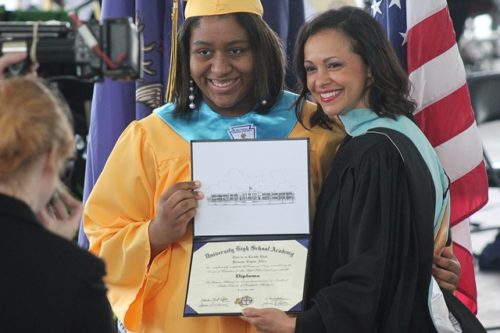I have a rising high school senior (that’s what you call them when it’s summer time and they’re not in school, you see), and many of us are thinking about the impending change that is “sending our kids out into the world.” A lot of us are navigating this for the first time, and there are so many things we don’t understand. One of those things is how we are going to pay, or help our children pay, for college.

The FAFSA is the Free Application for Federal Student Aid. Access it at www.fafsa.gov. (Make sure the site you visit has a .gov extension. Other sites might spoof this using a different exentsion and attempt to charge you money. Filling out the FAFSA is free–hence “FREE application.”)
My husband, Matt, has been working in a financial aid office at a college for over a decade. I brought him my friends’ questions, and here are his answers to questions we have had about financing college costs.
Question: Do I have to fill out a FAFSA? I know I won’t qualify for anything.
Matt’s Answer: I am going to tell you a secret–everyone qualifies for something! Many people mistakenly think that if they earn a decent living, they will qualify for no federal aid, but that is not true. Admittedly, that something might be just Stafford Loans. Before you say you don’t want loans, please understand that Stafford Loans are low interest loans with excellent repayment terms, and which come with cancellation provisions that you won’t find in any commercial student loan. Sometimes the Stafford Loans are “subsidized,” which means no interest accrues while the student is in school.

Question: Should I fill it out the FAFSA in October, or wait to see which schools accept my student?
Matt’s Answer: You should complete the FAFSA as soon as possible on or after October 1. Some aid is based on how early the FAFSA is submitted. You don’t want to lose out on aid because you waited. Also, you can list up to 10 colleges on the FAFSA, and all of them will receive your information.
Question: I’m not paying for Junior’s college. Does he still need my tax information?
Matt’s Answer: He does, unless he’s 25 years old or meets one of the other criteria to be an independent student. The vast majority of students under 25 do not meet the other criteria, which include being a veteran of the armed forces, or a ward of the court, being an orphan, or having dependents for which the student provides more than 50% support. So chances are your tax information will be needed on the FAFSA.
But rest assured, just because you provide that information does not in any way obligate you to pay for Junior’s college. And if you’re worried about giving the government your financial information, don’t be–they already know.

Question: The FAFSA is giving me an EFC of $40,000. I don’t have that kind of money!
Matt’s Answer: FAFSA isn’t telling you that you will pay $40,000, it is helping your financial aid office determine your financial Need. How does one figure Need? Well, you need two numbers: your EFC (Expected Family Contribution), which is the number you get after completing the FAFSA, and the school’s COA (Cost of Attendance). Schools list that on their website, so just do a quick search for “Cost of Attendance” on their website and you’ll find it. For example, Harvard’s COA is $76,650. Say your EFC is $40,000. To find your Need, subtract your EFC from the COA. In our example, you would still have $36,650 in need and be eligible for work-study and other forms of needs-based aid.
Question: I’ve heard that some students have “work study.” What is that?
Matt’s Answer: Work-study is a job, that is usually, but not always, on campus. The jobs vary widely–tutoring, office work, or even mucking stables for an equine program. The student applies for the job and goes to an interview just as she would if she were applying to work at Target. The difference is that the money she earns is not taxed, and is part of her financial aid package. She will only earn the amount she works. For instance, let’s say she gets hired at $10 an hour to work on campus. If her work study eligibility is $2000, she will need to work for 200 hours to make that money. If she only works 100 hours, she will only make $1000. These jobs can be great for students because campus employers are flexible about scheduling around classes, but they are real jobs and should be treated as such.
Question: This is using 2020 taxes, but I got a big bonus/lost my job in 2020. What should I do?
Matt’s Answer: The FAFSA uses “prior-prior” year’s taxes, which means that a FAFSA filed for the 2022-2023 school year will use tax information from 2020. Talk to your financial aid office! If a parent or student gets a one-time bonus, or if the family’s income has significantly changed, the financial aid office can take that into consideration. Ask for a special conditions or special circumstances form.
Question: Do colleges take other debts into account? I’m still paying MY student loans!
Matt’s Answer: The federal formula does not take parent or student debt into account. However, some colleges will take that into account when determining financial need to for institutional aid.
Question: This is hard, can someone help me?

Matt’s Answer: Help is available! Many colleges will assist students in filing a FAFSA. We’re fortunate to have the Iowa College Access Network (ICAN), which has offices all over Iowa. The local location is in the Kirkwood Regional Center on Oakdale Boulevard in Coralville. They help students and parents file their FAFSA. They have many other services as well, from career counseling to college selection to student loan counseling. And best of all, all services are free! Go to icansucceed.org for more information.
I know, this is a lot to take in. We all want to help our children have the best start as they launch into adulthood, without getting them in too much debt. Remember that help is available, from your school’s financial aid office, from ICAN, and from the Iowa City Moms Blog. Good luck, and should we all have a good cry together when our little bees leave the hive?











